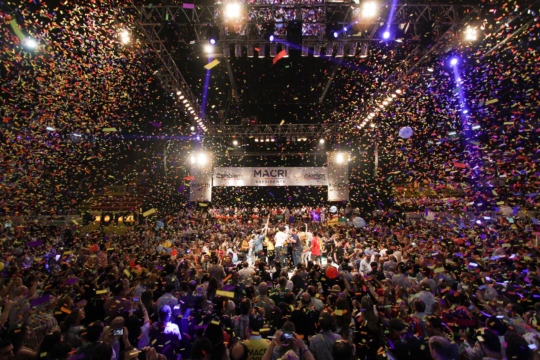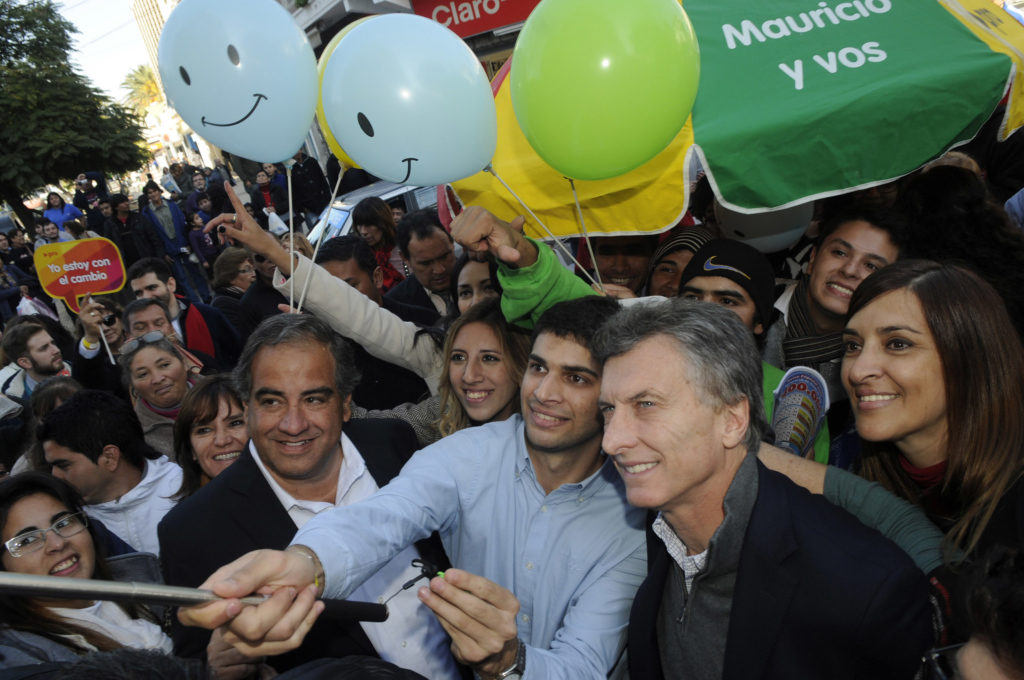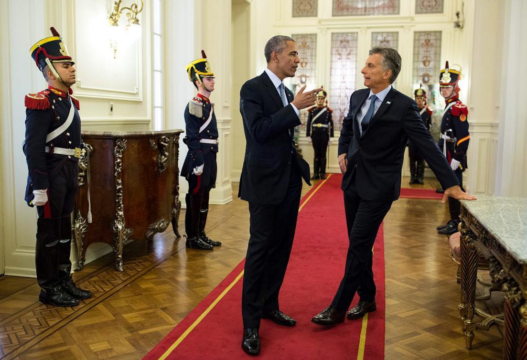
Argentina’s Surprising & Historic Election
Daniel Scioli will face Mauricio Macri in the first runoff election in Argentinian history on November 22.
BUENOS AIRES, Argentina — Argentina is living tumultuous days. This week will be the inauguration of a new administration. The election of Mauricio Macri as the country’s next president represents a major change after 12 years of rule by Nestor and Cristina Kirchner. For the first time since the emergence of Peronism in the mid 1940s Argentina has elected a president who doesn’t belong to, nor has any past association with, one of the two major political parties. Indeed, since Perón was first elected in 1946, constitutional presidents were either Peronists, Radicals or former Radicals (Frondizi).
The next four years will demonstrate whether this election was only an odd result or if it represents a more permanent transformation of Argentina’s political scene.
This is not a case of the typical charismatic Latin American leader who manages to win an election on the basis of personal appeal in the face of weak political parties. In fact, Macri becomes president after leading a long-term effort that included the construction of a new political party that now leads not only the federal government but also the two largest districts in the country.
The next four years will demonstrate whether this election was only an odd result or if it represents a more permanent transformation of Argentina’s political scene in which the Peronist Party loses its de-facto political monopoly and a right-of-center, market-oriented party becomes a permanent feature of the country’s democracy.
The Cambiemos coalition that supported Macri’s candidacy will not have a majority in Congress. A majority of provinces will continue being governed by the Peronist opposition. Moreover, Macri reaches the presidency, having won with a narrow margin and with a rather limited political base. As a good friend explained to me ‘we didn’t vote for Macri. We voted against Cristina’. These ‘anti-Cristina’ votes could be very volatile and quickly turn against Macri if his administration fails to make progress on the many economic, political and social challenges facing Argentina.

Under these circumstances, 2016 will be a crucial year and may well define the long-term outcome of the Macri presidency. How the new administration handles three key challenges could make the difference between success and failure.
On the economic front, the Macri administration will face a delicate short-term challenge moving to a unified foreign exchange market, reducing or eliminating currency controls (the so-called cepo cambiario), and controlling inflation – all in a context in which the Central Bank has very limited foreign reserves. If, within the first six months, the new administration is able to stabilize the exchange rate at levels close to those currently observed in the ‘parallel market’ (the so-called ‘blue dollar’) without an acceleration of the inflation rate, it could deservingly claim a major success. On the other hand, if the inflationary pressures that have accelerated over the last few weeks are not contained very fast, the new administration could face a very different situation.
On the political front, all eyes will be focused on the new administration’s relationship with Peronist Governors and Peronists in Congress. Given its minority status the Macri administration will need to establish cross-party agreements to advance its legislative agenda. Peronist Governors may hold the key to those agreements given their influence in Congress, particularly in the Senate where the Peronists hold a significant majority. All of this puts federal fiscal arrangements at the center of these negotiations. It is thus not surprising that Macri has appointed a very experienced economist and capable negotiator, Rogelio Frigerio, as his Minister of Interior. A recent Supreme Court decision in favor of three provinces related to financial claims associated with the system of federal tax-sharing system, and a rushed emergency decree by the outgoing administration granting the same rights to other provinces, illustrate the complexity of the issue. The success or failure of these negotiations will have a lasting effect on the administration’s ability to pursue its policy priorities.
Last, but certainly not least, will be the government’s capacity to manage social conflict. The first critical issue to observe is the evolution of salary negotiations (paritarias) particularly in the context of a more flexible foreign exchange policy. As head of government in the City of Buenos Aires Macri demonstrated great skill in managing relations with labor unions. He has given strong signals of seeking a similar approach as president, making a public display of his positive relations with Hugo Moyano (leader of one of the main labor union associations) and appointing Jorge Triaca (the son of a famous labor union leader) as Minister of Labor. The second issue worth watching is the extent of social conflict in the Buenos Aires Province, now governed by Macri’s party. With very deep pockets of poverty, the Province faces mounting demands for social investment. The departing provincial administration of Daniel Scioli (the losing presidential candidate) is leaving a deep fiscal problem. According to the incoming Governor, María Eugenia Vidal, the Province will need federal aid to pay December salaries and end-of-year bonuses (Aguinaldo) for public sector employees. After almost three decades, hers will be the first non-Peronist administration and all eyes will be on Cambiemos’ ability to avoid social conflict and improve living conditions for the large share of population in poverty.
After several years of a stagnated economy, the change in policies and governing style brought about by the new government could, conceivably, create the conditions for an investment boom.
Abroad, the dramatic change in both style and substance that the new Macri administration would bring is creating high expectations. There is also a strong growing sense of excitement within the business community in Argentina that sees Macri as friendlier, more predictable and easier to deal with. After several years of a stagnated economy, the change in policies and governing style brought about by the new government could, conceivably, create the conditions for an investment boom. But, in order to unlock these positive attitudes and enable a virtuous cycle of growth and prosperity, Macri and his team of technocrats will need to address effectively the short-term challenges facing Argentina. The honeymoon for the incoming government will be extremely short. The new administration will face unusually busy summer months. Let’s stay tuned.
Daniel Scioli will face Mauricio Macri in the first runoff election in Argentinian history on November 22.
Not as anticipated as his visit to Cuba, but at least equally important for the future of US-Latin America relations, was President Obama’s trip to Argentina.
Mauricio Macri has good reason to celebrate: Argentines just gave a strong endorsement to his reform agenda. To capitalize on these results, Macri will need to pick his battles carefully, resolve inconsistencies in his economic program, and show concrete results to maintain the trust of investors and citizens alike.

